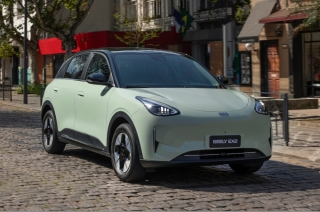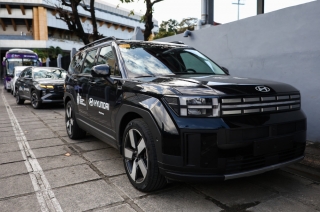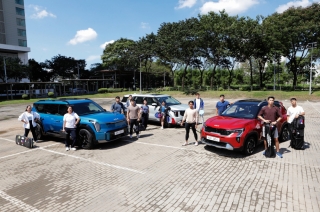
Hyundai Asia Resources, Inc. (HARI), has reported a slowdown of 8.3% or 22,223 units, which is quite a dip from last year’s 24,233 units sold. Despite this record, the Korean brand described it as a ‘minimal’ drop since it has steadily sustained the growth trajectory for 2018.
On the brighter side, the recently launched Kona has been getting a great amount of attention in the subcompact SUV market. With this, the Light Commercial Vehicles (LCV) sales has grown remarkably from the same period last year with 10.4%. This record has surpassed the passenger car (PC) segment for the first time.
Speaking of PC, this segment has covered two-thirds of the brand’s total vehicle sales with 13,935 units retailed from January to August of this year. Among Hyundai’s passenger cars, the Accent has remained the brand’s front-runner with 1,172 vehicles sold, followed by Eon and Elantra. However, PC segment sales has dived down from 2,112 units in August last year to 1,448 vehicles sold in the same period in 2018.
It’s safe to say that this slowdown is already expected in the automotive industry. Well, with the continuous global oil price increase, excise tax imposed on vehicles, and the 6.4% inflation rate in the country, it’s a perfect recipe to shake the industry a quite bit.
Regardless of these happenings, Hyundai keeps its hope with positive sentiments from investors on the current administration’s “Build, Build, Build” program. According to the Korean brand, this has a great potential to counteract the negative effects of the Philippine economy in the automotive industry.
“Even with the conservative economic outlook, Hyundai has proven itself to endure the odds. Backed by a strong community of Hyundai users in the country, we have proven time and again that our products and services remain relevant in the automotive industry.”
Latest News
-
Geely’s EX2 EV headed to Australia — is a Philippine launch possible? / News
The Geely EX2 is confirmed to go on sale in Australia in 2026. Could a launch in the Philippines also be on the cards?
-
Hyundai Motor Philippines is the FIFA Futsal Women's Teams' official mobility partner / News
Hyundai Motor Philippines strengthened its partnership with FIFA through its support of the FIFA Futsal Women's Teams.
-
Kia Philippines backs EJ Obiena as Atletang Ayala continues championing Filipino athletes / News
Kia Philippines strengthens its support for EJ Obiena, backing the Olympian with dedicated mobility at home and abroad.
Popular Articles
-
Electric Vehicles in the Philippines for under P1 million
Jerome Tresvalles · Aug 19, 2025
-
Top 3 Cars For Every Lifestyle—What Cars Are Right For You? | Behind a Desk
Caco Tirona · Apr 24, 2024
-
5 Tips to Maximize Fuel Efficiency
Jerome Tresvalles · Sep 09, 2024
-
Five driving habits that are draining your fuel tank
Jerome Tresvalles · Jun 24, 2025
-
Can engine braking harm your engine?
Jerome Tresvalles · Sep 11, 2025
-
Do electric cars even need maintenance?
Jerome Tresvalles · Oct 23, 2024
-
Best vehicles for an active outdoor lifestyle
Shaynah Miranda · Jul 25, 2024
-
How to drive different types of vehicle transmissions
May 23, 2024
-
5 easy ways to keep your car interior clean
Allysa Mae Zulueta · Nov 15, 2021
-
How to survive Metro Manila traffic
Earl Lee · Aug 16, 2022




